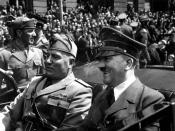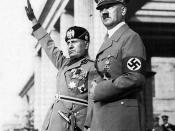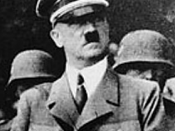The contribution and hindrances created by totalitarianism The totalitarianism of Germany "ÃÂ political aspect Nazis Germany claimed to have created a one party regime. By the Enabling Act of 1934, Nazis Party became the only legal Party and Hitler was defined as the "ÃÂFuhrer'. Up to this level, Hitler made himself the only saviour of Germany. His supreme authority was exercised through the Nazi Party Central Office while the most important of the functional organizations in the early years were the Storm Troopers and Elite Guard which kept a tight scrutiny over all people. The purge of the Prussian Socialists and the establishment of reliable Nazis in key government positions were done by Goring in the early years after his seizure of power. The Gestapo committed the most horrible and heinous spy activities in human history. The transformation of the local organizations was practiced to form the new administrative states which were directly placed under the supervision of central rule.
Controls of police, judiciary and civil service were in the hands of particular independent bodies, such as the NSDAP. T hus, no para-organizations and opposition voices were allowed to exist. From the political aspect, we can see that the use of totalitarianism can consolidate the power of Hitler, as there was no power can upset Hitler's power. However, this also provoked a lot of antagonism within the country, as the basic right of human was being exploited at that time. This is a vital attack to a dynasty if it can't obtain the support of the people.
Cultural and Social aspects Nazis Germany aimed at full control of all aspects of cultural life. In 1933, a series of laws was introduced to prohibit the "ÃÂdefamation' of the government. The Reich Chamber of Culture tightly regimented all the arts, press, radio,


